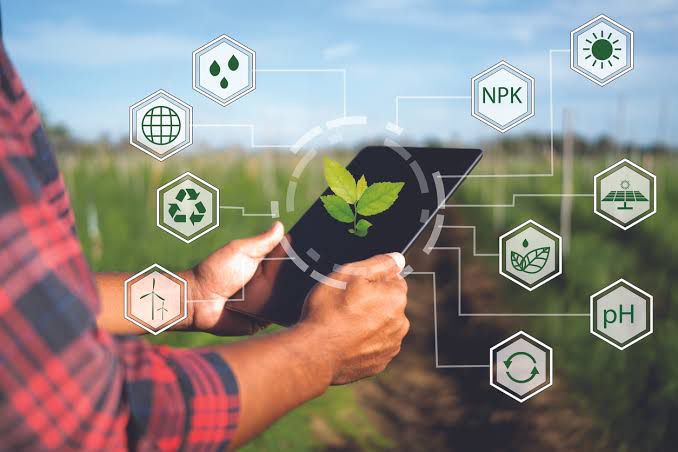Africa is blessed with vast arable land, a youthful population, and favorable weather conditions. Yet, despite these advantages, agriculture on the continent remains largely underdeveloped. Traditional farming methods, limited access to financing, climate change, and poor infrastructure continue to challenge farmers. But hope is not lost. A new wave is sweeping across the continent:
Agri-Tech — the use of technology to improve agriculture. From mobile apps to drones, this revolution is transforming how Africa farms, and it could be the key to ensuring food security, increasing income, and creating jobs.
Agri-Tech (short for Agricultural Technology) involves the use of digital tools, machines, and innovation to solve problems in the agricultural sector. It includes:
- Mobile apps for weather updates, market prices, and farming advice
- Drones for monitoring crops and spraying pesticides
- Sensors for tracking soil quality and moisture levels
- Digital platforms to connect farmers directly with buyers
- Blockchain and AI for improving supply chain transparency and farm decision-making
Africa’s agriculture is mostly small-scale, rain-fed, and labor-intensive. Farmers often lack access to critical information such as the right planting season, market prices, or modern farming techniques. As a result:
- Yields remain low (Africa’s cereal yields are less than half the global average)
- Post-harvest losses are high (up to 30–50% in some countries)
- Youth see farming as outdated and unattractive
Agri-Tech offers solutions to all these problems by making farming more data-driven, connected, and appealing to the tech-savvy younger generation.
Here are a few success stories already making an impact:
- Agrix Tech (Cameroon): Uses AI to help farmers detect plant diseases through smartphone pictures. It gives treatment advice in real time.
- Hello Tractor (Nigeria): A mobile app that connects farmers to tractor owners. Farmers can book tractors on-demand, like Uber for farming.
- FarmCrowdy (Nigeria): A platform that allows people to invest in small farms and get a share of the profit. This provides farmers with much-needed capital.
- Twiga Foods (Kenya): Links smallholder farmers to vendors in cities, cutting out middlemen and improving farmer income.
- Aerobotics (South Africa): Uses drones and satellite imagery to detect crop stress, pests, and diseases early.
While the potential is massive, there are still barriers:
- Limited internet access and digital literacy in rural areas
- High cost of some technologies (e.g., drones, smart sensors)
- Low trust in digital platforms due to fraud concerns
- Fragmented value chains that make scaling difficult
- Policy and regulatory gaps (few governments have clear Agri-Tech strategies)
To overcome these challenges, partnerships between governments, private companies, NGOs, and universities are essential.
Here’s how Africa can harness the full power of Agri-Tech:
- Invest in rural infrastructure and internet access
- Train farmers in digital literacy and build trust in tech
- Subsidize or finance access to Agri-Tech tools
- Encourage local startups and support innovation hubs
- Develop supportive policies that attract investors and protect users
Governments must also make agriculture a central part of national development plans, and see technology as an enabler, not a luxury. The Agri-Tech revolution is not just a trend but it is a necessity. For Africa to feed itself and the world, it must modernize its agriculture. With the right tools, support, and vision, farmers across the continent can become not just food producers, but agri-entrepreneurs leading the continent into a sustainable, food-secure future. The next step is clear, embrace Agri-Tech and grow Africa forward.


Leave a Reply